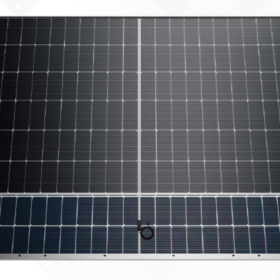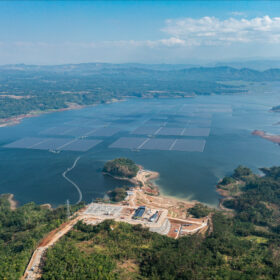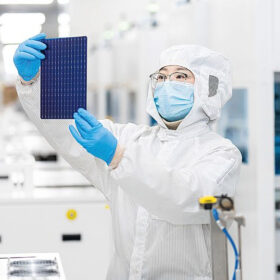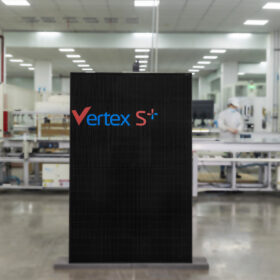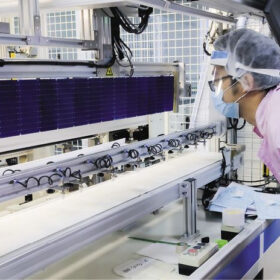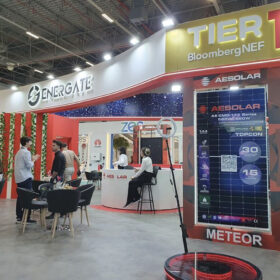FuturaSun releases 390 W silver solar panel
The Italian manufacturer said the new version of its silver module is ideal for grey roofs and buildings with modern architecture. It uses a 3.2 mm silver-coated glass and features a power conversion efficiency of 19.52%.
Jolywood releases 595 W bifacial TOPCon solar panel for harsh environments
The Chinese manufacturer said that its new glass-backsheet Windproof module utilizes a zinc-aluminum-magnesium surface alloy technology and a high-strength steel substrate. It features a power conversion efficiency of up to 23.03%.
PowerChina wraps up record 102 GW solar equipment procurement tender
China Power Construction Corp. (PowerChina) says it has concluded the largest procurement tender in solar industry history, involving 51 GW of PV modules and 51 GW of inverters. The tender results, published on Nov. 13, set a new record for scale and industry involvement.
Solving the UV problem of n-type solar
Laboratory testing has revealed that some negatively-doped, “n-type” tunnel oxide passivated contact (TOPCon) and heterojunction (HJT) solar modules are susceptible to ultraviolet (UV) light-related damage and degradation. That could mean trouble down the line, if modules in the field begin to show UV-related performance loss. Manufacturers are implementing solutions at cell and module level.
Will Indian solar manufacturers go back-contact to the future?
Indian PV manufacturers are looking beyond tunnel oxide passivated contact (TOPCon) solar. Back-contact (BC) devices are an enticing prospect but many feel the technology is not mature enough. Uma Gupta considers the cost, yield, and reliability challenges that BC solar has to overcome.
How will PV’s intellectual-property scuffles shake out?
Lawyers are doing brisk business as tunnel oxide passivated contact (TOPCon) solar technology moves into the mainstream. A series of patent infringement cases have been launched in the United States and Europe and their impacts are reverberating through the marketplace. How likely is it that winners will emerge?
Trina Solar begins mass production of 430-455 W full-black modules
Trina Solar says it has launched mass production of 430 W to 455 W full-black PV modules. The Vertex S+ panels have efficiencies of up to 22.8% and weigh 21 kg, with a 1.6 mm x 1.6 mm dual-glass design.
Competition, oversupply to reduce n-type solar module prices
Global solar demand will continue to grow in 2024, with module demand likely to reach 492 GW to 538 GW. Amy Fang, a senior analyst at InfoLink, looks at module demand and supply chain inventories in a market still affected by oversupply.
China’s solar dominance set to continue amid price slide
With solar module oversupply triggering a price freefall in 2023 and no recovery in sight, market consolidation, inventory pile-up, technology shifts, and challenges to reshoring PV manufacturing are set to affect all levels of the solar supply chain.
Turkey’s solar ambitions range beyond its borders
The number of module assembly businesses in Türkiye continues to rise but, despite protectionist moves to support domestic manufacturing, consolidation appears likely. Ambitions abroad, expansion at home, and interest from Chinese suppliers, were all on show at the recent SolarEX trade fair in Istanbul.

